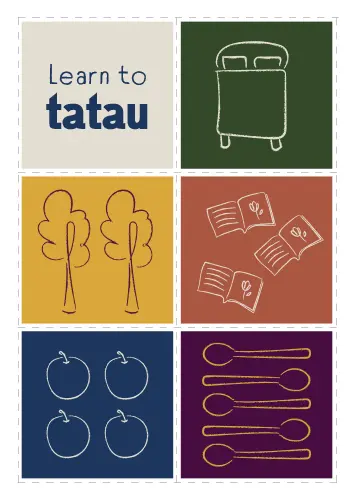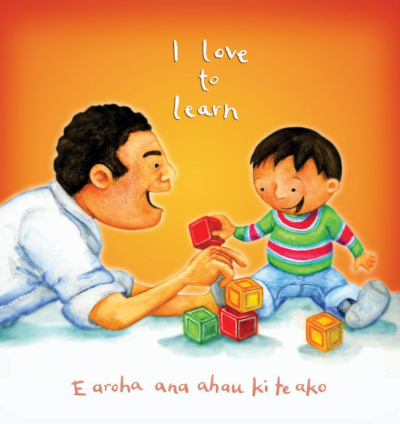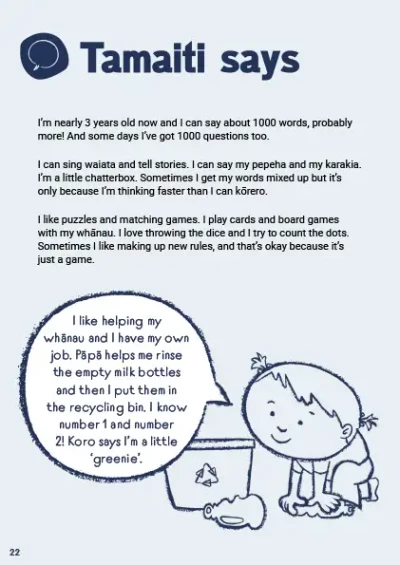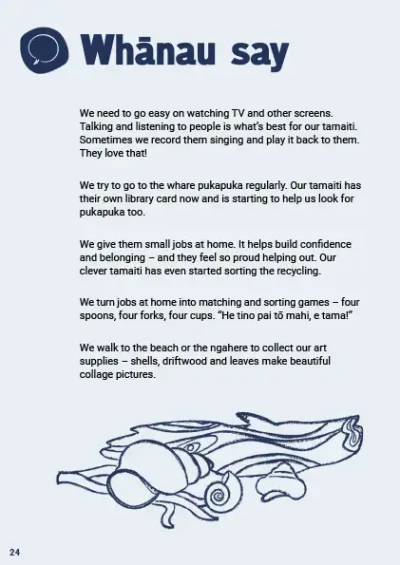
Talking about maths
Children will begin to understand things in a maths context, such as big and little, short and tall and so on. Whānau can encourage this through games and everyday activities.
At this age, a child is learning to understand ideas such as big and small, same and different, long and short and heavy and light. These are all basic maths concepts.
Maths and play
Ask whānau:
- What kinds of things does your child enjoy playing with?
- What do they talk about when they’re playing?
- How do they respond when you play together or when you talk together about what they’re playing with?
- Have you tried talking about what they are looking at, touching or exploring while they do it? This is called parallel talk. Your words run parallel to their play and thoughts.
- What’s that like?
- If you haven’t tried it, you might like to give it a go. It’s one of the best ways to help your tamaiti learn new words.
You can help a young child become aware of maths concepts by drawing attention to objects that are the same but are different sizes, colours or shapes. For example, if you’re looking at leaves, you could say something like ‘Here are some big ones. Can we find some small ones?’
Here are some other ideas to try when you and your child are playing:
- ‘Which one’s bigger?’
- ‘Let’s see if we can build this higher.’
- ‘Can we all have the same size piece of cake?’
- ‘Does this cup fit inside that cup?’
- ‘Let’s put all the red blocks together’
Matching games
At this age, children are likely to enjoy matching games and activities. The world is full of interesting things, including:
- different coloured pegs, clothes, pencils, blocks, balls, cars, flowers and fruit
- different sized things – sticks, stones, toys, tins, shells, shoes and hats.
On page 22 of the Whakatipu booklet 'Te Kōhuri 3', tamaiti says: ‘I like puzzles and matching games. I play cards and board games with my whānau. I love throwing the dice and I try to count the dots. Sometimes I like making up new rules, and that’s okay because it’s just a game.'
- What kinds of games does your whānau like to play?
Lots of matching, collecting and sorting activities happen in everyday life. The world is full of things that can be categorised (matched or sorted) in some way.
On page 24 of 'Te Kōhuri 3', Whānau say: ‘We turn jobs at home into matching and sorting games – four spoons, four forks, four cups... We walk to the beach or the ngahere to collect our art supplies – shells, driftwood and leaves make beautiful collage pictures.'
More ideas for maths activities
- You might just collect things to bring home and sort them by size, shape or colour.
- You can talk about ‘same’ and ‘different’.
- There are many opportunities around the house, in the kitchen, wash house and bedroom. We can sort socks by pairs and colours, pegs by colours and pencils and crayons by size and colour.
- Some people find they can make a game of tidying up – let’s pick up all the red things, the blue blocks and so on.
Helpful resources for whānau
-
Maths play ideas
Ministry of Education
Maths is about counting, sorting, matching, pattern-making, sequencing, (for example, large to small), comparing items, size, colours, weight and volume.
-
Talking, reading, drawing and counting
Ministry of Education
Tips for learning at home through talking, reading, drawing and counting. The golden rule is keeping it fun for everyone.
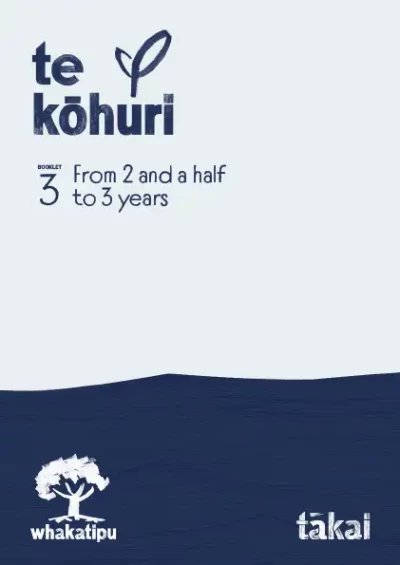 pdf 10 MB
pdf 10 MB
